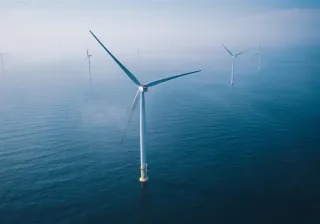Plastic has faced a lot of criticism, but its use is still growing rapidly. Plastic has strong competitive factors that cannot be simply dismissed. But how does this mesh with the declining amount of fossil oil that causes both climate change and environmental pollution?
The price of plastic has significance, especially when it comes to packaging. Plastic has been an affordable material particularly because of cheap oil. In the future, unconventional raw materials, such as shale gas by-products and condensates, will ensure the availability of affordable plastic for years to come. The more we move away from fossil fuels, the more certainly we will be using fossil raw materials to produce plastic.
Performance
Performance is a key success factor for plastics. Plastics combine an eleongation with reasonable tensile strength, which makes plastic film in particular very useful for many products. The resilience of plastic is also a practical feature in rigid products and items with thicker walls. Particularly important features are that plastic repels water, acts as an oxygen barrier and is resistant to chemicals.
Flexible manufacturing processes
The undeniable benefits of plastic also include its compatibility to existing flexible manufacturing processes. The same pellets can be used to manufacture very different products, essentially using simple machines, with the principle of insert-pellet-retrieve-product. The finished products are also have freedom in shape and contain no seams. Achieving these qualities with alternative materials is often challenging. And when the replacement material is close, it is also considered to be plastic: if it feels like plastic, it is plastic.
Easy to use
Consumer choices are influenced by user experience, ease of use, and look and feel. This experience is also affected by the transparency and glossy properties of many plastics, which also was the original driver of creating wood-based cellophane. All of these have resulted in a material suitable for the market and an extensive and well-tuned industry that supports it.
However, we can achieve exactly the same characteristics with alternative raw materials, like manufacturing polyethylene from sugar-based alcohol or natural oils. Still, with the exception of lower carbon footprint and higher price, bio-substitute products are ultimately exactly the same products as oil-based ones.
With the development of regulations, plastic recycling technologies have become a growing trend. Chemical recycling is emerging alongside mechanical processes to address challenges related to product safety and contamination. Although recycling is never perfect, it does reduce the use of non-renewable raw materials and subsequently the related carbon footprint.
From mechanical to chemical recycling
The most recent topic of discussion is so-called electric cracking, which could produce intermediate plastic products by using emission-free electricity. This technology, combined with chemical recycling, could be a game-changer even though chemical recycling is not perfect either. By combining renewable raw materials, well-implemented recycling and emission-free energy, the future could bring a more sustainable generation of plastics that is no longer part of the oil industry.
The biggest challenge for plastics is the environmental problems they cause. Plastic pollutes the soil and the seas; due to imperfect waste collection, recycling alone is not enough. Even when the efficiency of material recycling is low, we should make sure that unrecyclable plastic waste gets converted into energy in a way that captures and possibly utilises the carbon dioxide generated by this process. This is particularly justified in the case of food packaging, as food waste is reduced by multi-layered plastic packaging that is difficult to recycle.







